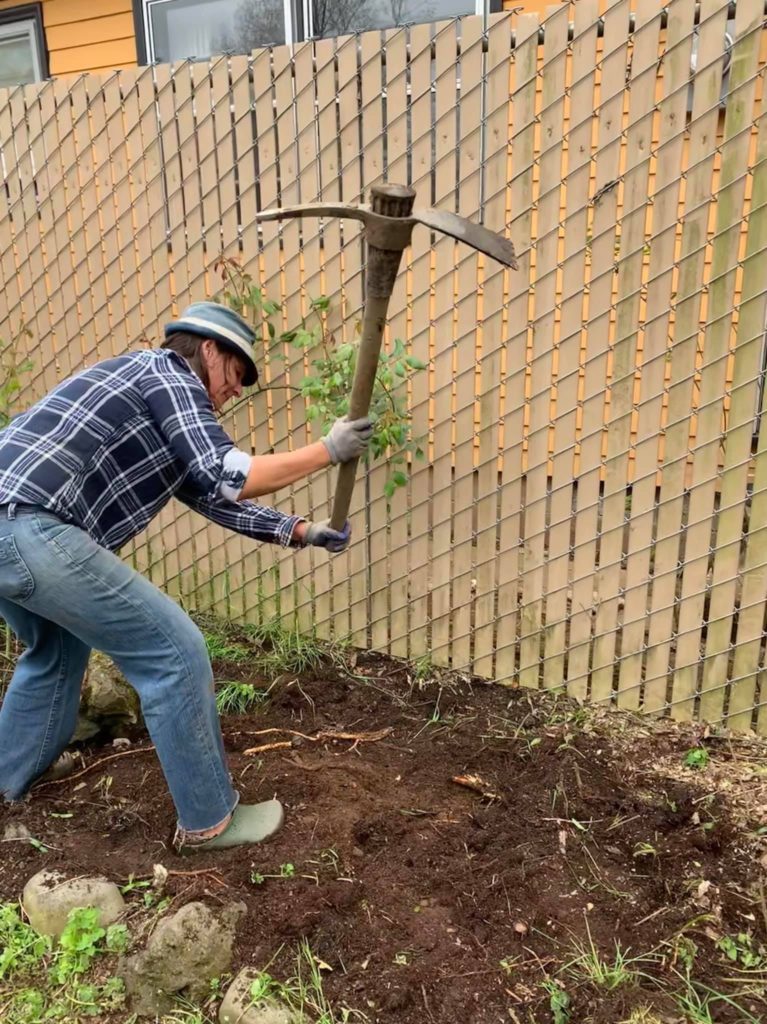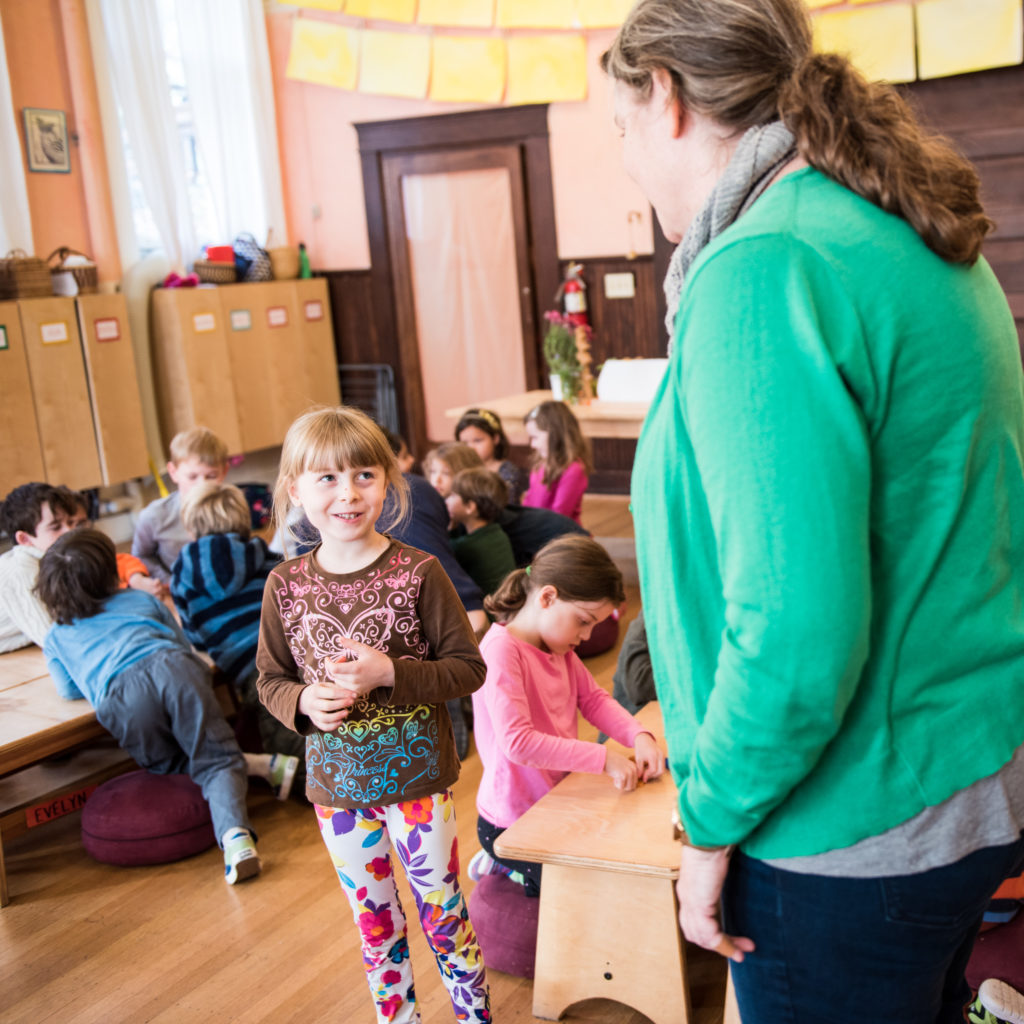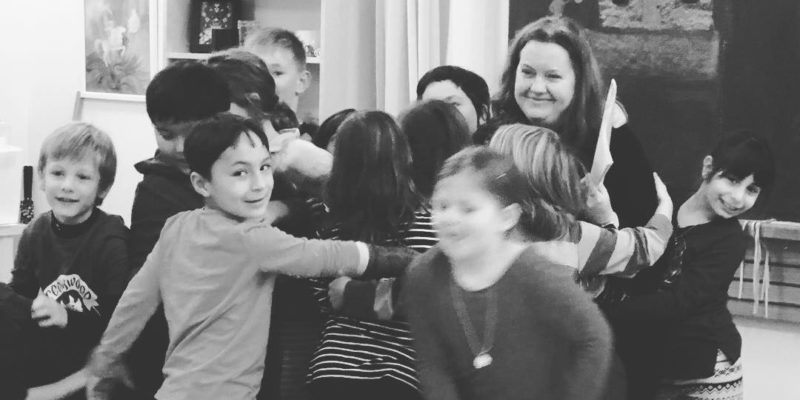We all know that working with students is just one part of the work of being a Waldorf teacher.
And for many of us, an ability to connect with and understand children is a big reason why we chose the teaching profession.
But, what they don’t tell you in teacher training, is that this work is just as much about working with parents as it is working with children.
And getting those relationships figured out is absolutely essential to not only your success as a teacher, but also your students’ success in the classroom.
I know teachers who ultimately left teaching because they found this aspect of the work so challenging. They said, “I can work with any child. It’s the parents that make it challenging.”
And really, should we be surprised that this parent-teacher relationship can be so contentious? I think not! Here’s why it can be so challenging.
- Parents are trusting you with their most-valued, most-treasured gift. If they have questions that cause them to question that trust, it would be irresponsible to not ask them.
- Parents have so much influence on your students, their actions — supportive or not — can make a huge difference in your daily work. When a student has been acting out all morning, disrupting your carefully crafted lesson and you find out that they stayed out till 11pm watching the Blazers game, it’s hard not to feel frustrated.
- Your students have two big authority figures in their lives — you and their parents (well, for many students this means three, but you know what I mean.) It’s natural that children feel caught between these two influences.
So, these are three big reasons why it’s worth putting some time and effort into nurturing those parent relationships.
Receiving Trust with Respect
When I became the teacher of my current class, back in first grade, I remember seeing the earnestness and good intention in their parents’ eyes at our first parent meeting.
It was so clear to me that they were so full of hope and dedication for providing their children with the best possible learning environment.
They had put their hearts and souls into caring for those little darlings and they were so clearly putting their trust in me, expecting that I would approach the task with the same care and intention.
Free Art Supplies List
This is a fantastic, very comprehensive list of the art supplies that are recommended throughout the grades. Entering your email address will also put you on the A Waldorf Journey updates list.
At the time, I remember comparing their perspective with the attitudes of the parents of my graduating 8th graders. One of the things that I remarked on at our graduation was my tremendous gratitude for the trust they had given me.
By 8th grade, these parents were dropping their students off at school and letting them figure things out. When my students and I had disagreements or homework assignments were late, their parents stepped back and let us work it out. They understood that I had a relationship with their children that was separate from the relationship we all had together.
After so many years of seeing how I respected their trust, by 8th grade it was freely given. But trust like that isn’t automatic. It comes from years of thoughtful, human relationship.
Understanding and Patience
Years ago, I attended a workshop at the local community college to earn clock hours for state licensing. It was not a Waldorf training, but I sat in a classroom with a group of early childhood teachers who were just as dedicated to their work as all of my colleagues were.
One of the things we talked about in that workshop was the idea that every single parent wants the best thing for their child. There is not a parent out there who does not want the best outcome or experience for their child. In that workshop we talked about this premise being foundational to our work with parents.
I remember thinking how different this perspective was from some of the grumbling I’ve heard from some of my Waldorf colleagues.

The thing is, if we remember that all parents want the best thing for their child, we can see things in a different light. Those moments when it seems like parents are not doing what seems to be the best thing for their child (like letting them stay up till midnight for a basketball game) can be thought about differently.
- Maybe they don’t understand the impact that the action has on the child. In this case, they just need information from you. Share your observations. Free of judgement, with just the facts.
- Maybe they’re doing the best they can. Maybe the single mom had to work and had no choice other than to bring the child along.
- Maybe they are acting according to values that are different from yours. Maybe long lost Uncle Ted was in town and surprised the family with tickets to the game. Of course, they should go. It might be the one experience the child has with a family member.
When I started viewing those different choices in this light, I found that it made a huge difference. I started recognizing that my class parents are always doing the best that they KNOW or CAN do.
And sometimes what is important to them as a parent is different than what is important to me as a teacher. As long as those moments of contention don’t happen too frequently, I can live with these differences.
The important part is recognizing that we all want the best thing for the child.
Balancing Authority
These differing value systems can sometimes make it difficult for teachers and parents to see eye-to-eye. And when this happens, the person who suffers the most is the child.
Because here’s the thing. If a child is faced with two authority figures who are at odds with each other, the child feels pulled in two directions.
“I love my parent!”
“I love my teacher!”

But get this, no matter how loving, heartfelt and connected your student relationships are, if it comes down to teacher vs. parent, parent will always win.
On a very deep level, your students know that their safety, happiness and overall well-being is the duty and responsibility of their parents.
And when your students’ sense of safety is shaken by a conflict between two authority figures, and they are looking for security and reassurance, they will always turn to the parents.
And truly, we wouldn’t want it any other way. I mean, I love my students, but I am not their parent. The best thing that I can do is to make sure that I align myself with their parents and that we are working together as much as possible.
Okay, so you see how important it is to have a good relationship with class parents? What can you do to enhance that connection?
Talk them up.
Talk to your students frequently about the complete respect that you have for their parents. Let them know that you think their parents are incredible human beings. Don’t be afraid to go hyperbolic here. Kids know that part of them comes from their parent, so when you are complimenting their parent, you are complimenting them. Some ideas?
- “Look at your lunch! Your mom is such a good cook!”
- Tell your students stories about good deeds that your own children did for you and how it made you feel.
- Acknowledge the important hard work of the class parents, even when (or especially when) it means that the child needs to go to aftercare.
In general, carry the attitude that you have nothing but immense respect for your students’ parents, and do whatever you can to let your students know it.
Communicate Communicate Communicate
I try to send a weekly email to my class parents with updates about the week. I also love to let parents know when they kids have done something remarkable. And, as well as I can, I let them know about upcoming events in advance.
When I communicate with them, they come to understand the level of thought and intention that goes into my work with their children. This builds trust and respect for my work and helps them to understand ways that they can support this work at home.
(It also helps that a bunch of them read my blog — hi guys!)
Never communicate a problem without a solution.
When you understand that your class parents approach their duty as parents with reverence and importance, it is easy to remember to be thoughtful when communicating problems.
I remember when I was a young mother and my child’s teacher came to me with a concern about his behavior. I remember feeling wracked with anxiety and discomfort about how to support my child. Knowing that there was something wrong and not having any idea about how to address it was agonizing! When some parents are in this uncomfortable situation, they understandably don’t handle it well. Sometimes they look for someone to blame (don’t be surprised if it’s a fellow class community member, or worse, you) or they go into denial. None of these reactions does anything to rectify the issue or support you or the child.
So whenever there is something difficult to communicate with a parent, I try to make sure I’m clear about what I am expecting of them and what they can do to help remedy the situation.
When parents worry, they need reminders that mistakes are a part of life and that our job is to help children learn and grow from those mistakes. Our effort is not to avoid them.
So help them know what to do and they’ll approach the problem with confidence and a problem-solving attitude.
Love them. And their kids.
Seriously. Do you know how hard it is to be a parent in today’s world? Parenting is hard enough, and the world has made it even harder. Those parents need you on their team. Help them out and let them know that you’ve got their backs.
I promise, if you put in the work to nurture those relationships, build respect for your class parents and support them however you can, it will come back to you in spades!
Life isn’t easy. We need each other. Work together. Understand one another. And love those kids.




Leave a Reply